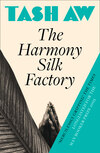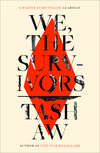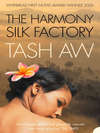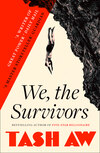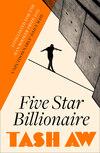Kitabı oku: «The Harmony Silk Factory», sayfa 5
Nothing had been stolen from Tiger’s pockets. Neither his gold wristwatch nor his jade ring had been taken. Later, the police gave these items to Johnny. They folded them up in a white brocade cloth the Chief Inspector had bought from Tiger’s shop some time before, and placed the delicate parcel in a black lacquer box. They brought it to the shop, where Johnny was making preparations for the funeral. They bowed low and gave Johnny the box. Witnesses to this scene say that the great Johnny, who was never known to cry, had ‘blood-red’ eyes, ‘glasslike’ with tears. He accepted the box graciously and said quietly, ‘This is the beginning of a new time.’ All who were present felt the truth of these words.
The box remained with Johnny for the rest of his life – a symbol of triumph, perhaps, or at least the start of a new life.
The funeral lasted three days, during which the shop remained closed as a mark of respect. On the third day, once the minor ceremonies were over, the final offerings to Tiger’s spirit were made in the middle of Kampar. Anyone who had ever known Tiger was free to attend. A crowd began to gather before the morning became hot. Many people had travelled overnight to attend the occasion, and now stood waiting patiently for their turn before the great, dead man. Even small children queued up to pay their respects. When they approached the coffin they peered nervously at the body. ‘Pai!’ their parents commanded, and so they did, bowing their heads and lowering their burning joss sticks three times.
Little bundles of paper money marked with silver and gold were handed out to all those who came. Each person took this paper money and dropped it into a huge tin drum which held within it a fierce fire, a bonfire of heavenly money for Tiger’s afterlife.
During the days of the funeral Johnny was the focus of attention. He was seen everywhere, organising everything, talking to everyone. Many people remarked how difficult it must have been for him and how well he was coping, but then again they didn’t expect any less. Here was a great man, they said, a pupil in the mould of the teacher, a son in the image of the father.
In the middle of the afternoon, while people waited for the priest (who was late) to arrive, a cloth supplier was seen to approach Johnny. No one heard his exact words, but it became widely known that he asked to speak about business arrangements with Johnny now that Tiger was dead. Perhaps he wanted payment up front; perhaps he wanted to withdraw the shop’s credit for the time being; maybe he even threatened to expose the shop’s communist links in order to extort larger payments from Johnny. Perhaps he had simply misjudged Johnny’s character, believing that the young man would not be as firm as old Tiger had been. He was wrong. Johnny turned on him with cauldron-black eyes and struck him with a single smooth blow administered with the back of the fist. The man’s entire body spun from the force of the blow and collapsed on the floor. Johnny had his men drag the man out on to the dusty road, where he was left to recover in dazed silence, in full view of the scores of mourners. None of them had any sympathy for him, and a few even rounded on him, telling him he should be ashamed at his lack of courtesy. No one was deeply sad when they heard, some months later, of reports from Penang of this man’s death by stabbing in a bar fight in Georgetown.
Johnny had arranged for an altar to be built in the shop. White marble framed with carved jade – nothing too showy. A photograph of Tiger was set into the smooth marble face. It was a picture from his younger days, hair waxed and neatly combed, his gentle smile revealing only one gold tooth. An offering to Tiger was laid out before this altar, chrysanthemums and boiled eggs and a poached chicken. An earthenware jar was placed here too, full of burning joss sticks lit by the processing mourners who came to bow to Tiger’s image.
Not a word was said when Johnny took over the Tiger Brand Trading Company, running and controlling every aspect of its business as Tiger had before him. It seemed perfectly natural that this should be the case. In fact, it might be said that the people of the valley would have been shocked if Johnny had not taken over. There was a new sense of urgency at the shop. Business was as brisk as it ever had been, but both the workers and the customers noticed that there was more energy in the shop now. No one could explain this – it came from Johnny, was their simple explanation. Small things changed too. New light bulbs were fitted, making the shop less gloomy, so it could stay open later, well after dark. People would call in for a chat on their way to dinner. They would share jokes with Johnny and with each other as he counted up the day’s takings. The light in the shop made everything look golden.
Very soon, people began to forget about Tiger. For a time, however, there was talk about who might have killed him. The police? Unlikely. They didn’t have enough evidence about Tiger’s ‘other’ activities. A rival businessman? Never. Tiger had no rivals, and besides, without Tiger there would be no business. A rogue bandit? No – remember he still had his valuables with him. Most likely it was a traitor, a police informant whom Tiger had taken aside to reprimand. The man (or woman) had panicked and shot Tiger. But some people – generally when drunk – began to say things about Tiger, things no one would have dared to say before. They said maybe he deserved it. He had got fat and lazy and he enjoyed his money just a little bit too much. Sure, he’d done a lot for the party, but he’d become a danger. He wasn’t the one cycling from village to village keeping the Cause alive in the valley. He wasn’t the one making money for the shop, money that could buy food and clothes for our boys in the jungle. All Tiger did was to tend to his goddam fruit trees. Sometimes he was even seen picking weeds from the grass in his garden, for God’s sake. What a stupid thing for a man like Tiger to do. They weren’t saying that they were happy he was dead, but they weren’t saying they were sad either.
Johnny still found time to visit the odd village as he had done before, but his old contacts knew that their boy was now a man, and now they would have to travel to him. A few times a year he organised lectures which grew less clandestine and more well attended. At these events there was generous hospitality, free food and drink for everyone. There was less lecturing, more laughing. The people loved him. Like us all, they wanted someone to worship and adore, and so they poured their hopes and fears into this young man who they did not, and never would, truly know.
It was at this point in his life, when he was just becoming a famous man, that Johnny met my mother.
7. Snow
My mother, Snow Soong, was the most beautiful woman in the valley. Indeed, she was one of the most widely admired women in the country, capable of outshining any in Singapore or Penang or Kuala Lumpur. When she was born the midwives were astonished by the quality of her skin, the clarity and delicate translucence of it. They said that she reminded them of the finest Chinese porcelain. This remark was to be repeated many times throughout her too-brief life. People who met her – peasants and dignitaries alike – were struck by what they saw as a luminescent complexion. A visiting Chinese statesman once famously compared her appearance to a wine cup made for the Emperor Chenghua: flawless, unblemished and capable both of capturing and radiating the very essence of light. As if to accentuate the qualities of her skin, her hair was a deep and fathomless black, always brushed carefully and, unusually for her time, allowed to grow long and lustrous.
In company she was said to be at once aloof and engaging. Some people felt she was magisterial and cold, others said that to be bathed in the warm wash of her attention was like being reborn into a new world.
She was magical, compelling and full of love, and I have no memory of her.
She died on the day I was born, her body exhausted by the effort of giving me life. Her death certificate shows that she breathed her last breath a few hours after I breathed my first.
Johnny was not there to witness either of these events.
Her death was recorded simply, with little detail. ‘Internal Haemorrhaging’ is given as the official cause. Hospitals then were not run as they are today. Although many newspapers reported the passing of Snow Soong, wife of Businessman Johnny Lim and daughter of Scholar and Tin Magnate TK Soong, the reports are brief and unaccompanied by fanfare. They state only her age and place of death (‘22, Ipoh General Hospital’) and the birth of an as yet unnamed son. For someone as prominent as she was, this lack of detail is surprising. The only notable story concerning my birth (or Snow’s death) was that a nurse was dismissed on that day merely for not knowing who my father was. As Father was absent at the time, the poor nurse responsible for filling in my birth certificate had the misfortune to ask (quite reasonably, in my opinion) who the child’s father was. The doctor roared with shock and disgust, amazed at the nurse’s ignorance and rudeness. He could not believe that she did not know the story of Johnny Lim and Snow Soong.
Snow’s family was descended, on her father’s side, from a long line of scholars in the Imperial Chinese Court. Her grandfather came to these warm southern lands in the 1880s, not as one of the many would-be coolies but as a traveller, a historian and observer of foreign cultures. He wanted to see for himself the building of these new lands, the establishment of great communities of Chinese peoples away from the Motherland. He wanted to record this phenomenon in his own words. But like his poorer compatriots, he too began to feel drawn to the sultry, fruit-scented heat of the Malayan countryside, and so he stayed, acquiring a house and – more importantly – a wife who was the daughter of one of the richest of the new merchant class of Straits Chinese. This proved to be an inspired move. His new wife was thrilled to be married to a true Chinese gentleman, the only one in the Federated Malay States, it was said. He in turn was fascinated by her, this young nonya. To him she was a delicate and mysterious toy; she wore beautifully coloured clothes, red and pink and black, and adorned her hair with beads and long pins. She spoke with a strange accent, the same words yet a different language altogether. This alliance between ancient scholarship and uneducated money was a great success from the start, especially for Grandfather Soong (as he came to be known), who was rapidly running out of funds.
His talent for finding an appropriate partnership appears to have passed on to his son TK, who proved to be even more astute. While managing to cling on to his father’s scholarly heritage, TK also managed to learn the ways of the new Chinese – the ways of commerce and industry. He did so through his wife, Patti, who was the daughter of no less a person than the kapitan of Melaka’s right-hand man. TK and Patti were a formidable pairing indeed.
TK had always shown exceptional promise, even as a young boy. He passed his examinations in law at the University of Malaya with the highest honours and for a brief spell studied at Harvard before impatience, boredom and cold weather brought him home. For a while, he considered pursuing a career in banking in Singapore, but opted instead to return to the valley, where there were none of the distractions that abounded in Singapore – nightlife, foreign money, women. He was a notable calligrapher and painter, and his home was decorated with many scrolls of Tang poems, written in his own flowing hand. Many of them have been rehung in that old house, the same house which was Snow’s home and, briefly, Johnny’s too. The house is now inhabited by Patti’s relatives – my cousins, I suppose, though I do not know them.
Like me, TK was the only son of a wealthy family in an area where wealthy families were uncommon. People would have known and talked about him simply because of who he was, even before he had done anything of note. It is a difficult thing to live with. When you know that everyone talks about you behind your back, while looking at you with silent eyes, it can sometimes have an effect on you. For although people may admire your standing in life, they may also boil with jealousy and hatred. It makes you think differently from other people, and eventually it distorts your personality. That was the case with TK. A young man like him wearing smart Western clothing and spending his time painting would have aroused much comment. In the end, it was the burden of what other people said that made TK settle down and build a life and a family for himself, just as his father had before him.
First, he changed his appearance. He swapped his Western suits for the traditional Chinese clothes his father once wore, the attire of a Manchu civil servant – long shirts made of the richest brocade, trousers of plain, good silk. This kind of dress was no less conspicuous in rural Malaya, and many people thought it was merely a phase which he would soon leave behind. But he persisted with it to the end of his days; it is how he is dressed in the stiffly posed photographs that survive. He continued reading classical Chinese texts; he wrote and he painted. But his demeanour changed. Whereas before he had been flamboyant and easily excitable, now he was serious and calmly spoken. At last, sighed his parents, he took an interest in business. He benefited from family connections and became involved in large-scale enterprises such as commercial loan-making and the import and export of tin and rubber to Europe. He got married too.
Patti was said to have been a woman of notable beauty, although to my eyes hers must have been a beauty of that particular age. Certainly, the worn sepia-tinted portraits do not do any of their subjects justice, but even so, she appears sullen and withdrawn. If you look closely, you can see where Snow inherited the cold streak that she was said to have possessed. Patti’s mouth is drawn tight and thin, her eyes hard and dark. Her looks are not dissimilar to her daughter’s but her beauty (if it is beauty) is of a harsher variety.
Though I close my eyes and search my memory I cannot recall ever having seen TK and Patti Soong, my grandparents. They exist only as ghosts, shapeless shadowy imprints on my consciousness. Sometimes I wonder if there is any chance that I might have liked them, loved them. Even ghosts and shadows are capable of being loved, after all. But always, the answer is ‘No’. I would not have loved them even if I had known them, because when the debits and the credits have been weighed, TK and Patti fall on the wrong side of the line between good and evil. It was their desire for Snow, my mother, to marry a rich man that pushed her into the arms of Johnny. Nothing can ever atone for that.
By the time Snow was of marriageable age, Johnny was already well known across the valley. He was the sole owner of the most profitable trading concern in the valley and was widely admired in all circles. As with all beautiful young women of a certain background, Snow had already had a good deal of experience of suitors and tentative matchmaking. All of these possibilities had been created and choreographed by her parents. They took her to Penang, KL and Singapore, where she was displayed like a diamond in a glass box. Yet it was closer to home, at the races in Ipoh, that they found the first serious contender. He was a beautiful-looking boy with a powder-pale complexion to match Snow’s. He had large, clear eyes and stood tall and erect with all the dignity you would expect from a son of the Chief Superintendent of Police. When he was introduced to Snow he kissed her hand – kissed it – a gesture he had learned during his days travelling in Europe. He complimented Patti on her sumptuous brocade dress and quietly whispered a tip for the next race in TK’s ear.
It wasn’t long before Snow and the Superintendent’s son were allowed to take tea together. They sat exchanging polite conversation. She talked about books – novels she had read – while he nodded in agreement. Although TK and Patti were pleased with his dignified manner and solid background, it was his family’s home which brought greater excitement to them, for the Superintendent had recently built a modern, Western-style house in which many of the rooms had wall-to-wall carpets. The main dining room had one wall of pure glass so that it served as an enormous window. Such daring was indicative of considerable wealth, an impression which was confirmed by the quality of the jade jewellery worn by the boy’s mother: dark in colour with a barely marbled texture. To top it all, Snow and the boy looked such a pretty pair and would surely attract all the right comments when the time came for them to venture into the public eye.
Thankfully, before such an understanding was reached between the parents, TK and Patti discovered that the boy’s parents were not quite as wealthy as they seemed. The Superintendent’s lavishness at the races had taken its toll on the family’s finances, and it was thought that much of his wife’s fabulous jewellery was borrowed from sympathetic relatives. It was clear that the dowry which TK and Patti expected in return for the hand of their daughter could never be fulfilled.
Scarred by this experience, TK and Patti became cautious and especially thorough in their appraisal of potential suitors. They asked many questions, they made enquiries. They did not want to make the same mistake twice. In letting the match with the Superintendent’s son progress to the extent it did, TK and Patti had been careless. One such mistake was forgivable; two mistakes would not be. Not only would it reflect badly on them, it would also diminish the value of Snow’s attractiveness. The size of the dowry would almost certainly be smaller. Yet their diligent investigations made the prospect of a match more and more remote. Every search turned up some unpleasant detail about the family in question, ranging from full-blown scandals to questionable associations: lunatic grandfathers, homosexual uncles, bastard children, gambling debts, hushed-up divorces.
The plain truth of it was that it was 1940, and there was little money in the valley, certainly nothing that could match the wealth of the Soong family. Snow was not yet twenty. There was still time, but a suitable match had to be made soon.
For all their meticulous planning, TK and Patti’s first proper meeting with Johnny was precipitated by events beyond their control. It so happened that a new man was appointed as head of the British mining concern in the valley, a fine young gentleman called Frederick Honey. He arrived with impeccable credentials, having gained a rugger Blue at Oxford and a keen grasp of tropical hygiene and colonial law from the School of Oriental Studies. His reign over the British tin-mining enterprise was, ultimately, short-lived, for he was lost to a boating accident in 1941, when he drowned in the waters off Pangkor island in a treacherous monsoon storm; his body was never found. It is clear, however, that during his short tenure in the valley, he was much admired. TK Soong was, as you can imagine, quick to see the value of having Mr Honey as an ally, and eager to make an impression on this formidable new tuan besar as soon as possible. It was decided in the Soong household that a gift should be sent to Mr Honey, something instantly suggestive of the Soongs’ status and influence in the valley; something unusual and beyond the reach of an Englishman newly arrived in the country. But what? A whole roast pig, perhaps? No – too ostentatious. A scroll of the finest Chinese calligraphic paintings? No – not grand enough.
‘How about some textiles,’ Patti said in desperation to her husband. ‘From that man, what’s his name – Johnny Lim?’
TK paused. He was inclined to dismiss the idea at once, but the paucity of previous suggestions persuaded him to consider for a moment. He paused for quite some time. ‘It’ll be fruitless,’ he said, but nonetheless decided to summon Johnny to the house.
Johnny had long since ceased to tour the countryside by bicycle, but the call of TK Soong was one he could not resist. He arrived at the house and found himself seated in the enormous room in which the Soongs received their visitors. Its vastness amazed him; his eyes could barely take in the details of its space: the rattan ceiling fans rotating slowly, arrogantly, barely stirring the air; the softness of the light through the louvred shutters; above all, the books, which lined an entire wall, row after perfect row.
‘We have heard many good things about you,’ TK said as Johnny began to unpack his bags on the table which had been specially set up for him. ‘Thank you,’ he said, still marvelling at the books.
Behind his back Patti tugged at TK’s sleeve. ‘How old is he?’ she whispered. She had heard that Johnny Lim was a young man, and in her mind’s eye had pictured a wild-haired, loud-mouthed tearaway with dirty fingernails. Yet before her stood someone neat and compact, who seemed almost middle-aged, whose movements were laborious and heavy with experience. A fleeting image tickled her imagination: Johnny and Snow seated on bridal thrones of the type that perished with the death of nineteenth-century China. ‘I must say, Mr Lim,’ she said as she fingered a piece of English chintz, ‘now that I see your wares, I can understand why people are so complimentary about you. About your shop, I mean.’
Johnny lowered his head and did not answer. He unfolded a length of songket, its gold threads shining and stiff and stitched into an intricate pattern.
‘This piece of cloth, for example,’ Patti continued, running her hand over a piece of brocade, ‘is very beautiful. Very fitting for a woman, wouldn’t you say?’
Johnny nodded.
‘Not for an old woman like me, of course, but for a younger woman. Do you agree, Mr Lim? It must be very popular with fashionable ladies.’
‘No, not really,’ he said truthfully. ‘It’s too expensive.’
‘Ohh, Mr Lim,’ Patti laughed. ‘Truthfully, do you think it would suit a young woman? No one very special or very beautiful, of course.’
Johnny half shrugged, half nodded.
‘Would you mind if I asked my daughter to see this? I’m sure you’re too busy to spend much time with her, but if you could spare a few moments –’
‘I would be pleased to meet your daughter,’ Johnny said. His pulse quickened. Even though he had heard about the Soongs’ famous daughter he had not for a second thought that he would be introduced to her.
‘I’m sure you’re just saying that to be polite, Mr Lim,’ Patti said with a laugh as she got up to leave the room. ‘After all, my daughter is hardly worth meeting. I’m sure you will be disappointed.’
‘I’m certain I will not.’
‘If you insist,’ Patti said, disappearing out of view.
A minute elapsed, and then another, before she reappeared. ‘My daughter, Snow,’ she said.
It took Johnny several moments to gather himself. She was a disappointment, a shock. He had expected a tiny, exquisite jewel, but instead he found himself looking up at a woman who seemed to tower endlessly above him. He breathed in, trying to swell his chest and lift his shoulders to make himself taller. When he looked at her face he found her staring intently into his eyes, and he quickly lowered his gaze. He felt embarrassed, cheated – though he did not know of what.
Poor Snow. She had grown used to being courted by lively, attentive men, but now she was confronted by a suitor who seemed more interested in his fingernails. At one stage she noticed he was gazing at a spot just above her collarbone, and for a brief moment she thought that he was staring at her neck. Then she realised he was looking at the books on the shelf behind her. She tried to engage him in conversation, but it was no use. This curious man sat like a deaf-dumb little orphan child before her. He was small and dark with an impenetrable moon-face. She searched for some clue as to what his character might be and concluded that there was none: no character whatsoever. She began to feel sorry for him. Later, her parents told her that he was a textile merchant, very rich and well known. Snow had not heard of him. As she watched him leave the house, she knew, from the glow of contentment on her parents’ face, that all parties had reached an understanding. The negotiations – the courtship – would soon begin, but the business had already been concluded. That afternoon, TK and Patti had bought from Johnny a few lengths of songket and some hand-blocked European cotton, which would in turn buy them favour with the British. And as for Johnny, he had gained himself entry into a world he had always dreamed of.
Johnny and Snow’s first organised meeting was, unusually, in public and unsupervised. TK and Patti felt that given Johnny’s impeccable and restrained manners, it would not be imprudent to allow the pair to meet in such a way. They were not afraid of the gossip which would inevitably follow. This was, after all, an alliance they wanted people to talk about. All their instincts told them that this was a match they should be proud of.
When Johnny and Snow appeared at the new picture house in Ipoh, a gentle commotion broke out in the crowd. Every head turned to see if the whispers were true. Was that really Johnny Lim – at the pictures? And was he here with TK Soong’s famous daughter? What did she look like? Where was she? For most people it was too much to bear, and throughout the film, a constant murmur of voices filled the auditorium. It was the first time many there had ever seen Snow. Men leaned forward in their seats, peering down the aisle just to catch a glimpse of the back of her head; women touched their own faces, noticing all of a sudden how plain they looked compared to her. And when the lights came up there was pandemonium. Johnny and Snow were nowhere to be seen.
Afterwards, the couple dined at the famous Hakka Inn. For Johnny, it was the realisation of many childhood fantasies. They were presented with roast suckling pig and jellyfish, black mushrooms and abalone, steamed grouper and a large dish of noodles. These were things he had never eaten before. He felt ill at ease going to smart restaurants. They were too bright for him, too full of movement and voices, and he always felt as if he was being watched as he ate. He had only ever been to restaurants to celebrate the conclusions of particularly large business transactions. This time, he tried to think of the experience as the biggest business venture of his life. Because to him, it was.
Once Johnny had overcome his initial awkwardness, however, he began to notice how rich and sweet the food tasted. He ate quickly, sinking deliciously into this new-found land of honeyed aromas and silken textures. He was like the rat in the childhood proverb, dropped on to a mountain of fragrant rice grain.
‘The food is good,’ he said. She did not know if it was a question or a statement, so she simply nodded, and he returned to his solitary feast.
Snow watched him feed. She wondered, as she always did when she was sent to meet a new suitor, whether she would be happy with the man before her. She always took it for granted that she would end up as the man’s wife. The choice was not hers, and accepting her fate early would make it less of a shock. So far she had not met anyone with whom she thought she could be happy. Even the Superintendent’s son, beautiful though he was, would have been unsuitable as a husband. He was far too inward-looking and concerned with the neatness of his clothes to notice her. Living with him would have been like gazing at the stars. A marriage could not be happy if the husband was prettier than the wife, that much she knew.
This new man did not bring her much hope either. As she saw it, the problem was not that she considered herself beyond his reach (beautiful wives and ugly husbands often made good matches), but that he did not seem to appreciate that she was at all attractive. For a while she entertained the idea that he had been tragically hurt by the death of a lover. He had a reason for being withdrawn, a sad and compelling story. She looked closely at his face for signs of a life or a love lost. She found him attempting to force an entire black mushroom into his mouth. This particular one was larger than the others, and he was having difficulties. He stretched his mouth sideways like a smiling fish in order to accomodate it; his lips quivered in an attempt to accept the sumptuous gift from the chopsticks. Eventually he succeeded, but then, after a few uncomfortable chews, was forced to spit the mushroom on to his plate. It landed softly on the gravy-soaked rice, and he repeated the whole exercise, this time succeeding easily. His chopsticks immediately reached for another mushroom, and he noticed Snow looking at him. His lips were thick and slicked with grease.
‘The food is good,’ he said, raising his eyebrows slightly.
She nodded, eyes fixed on his lips. No, she thought, there is no love story here. He was not capable of love. It was better that she prepared herself for this now.
He walked her to the bottom of the steps leading up to her house. All the lights were out, which usually meant that Patti was listening at the darkened window.
Ücretsiz ön izlemeyi tamamladınız.
